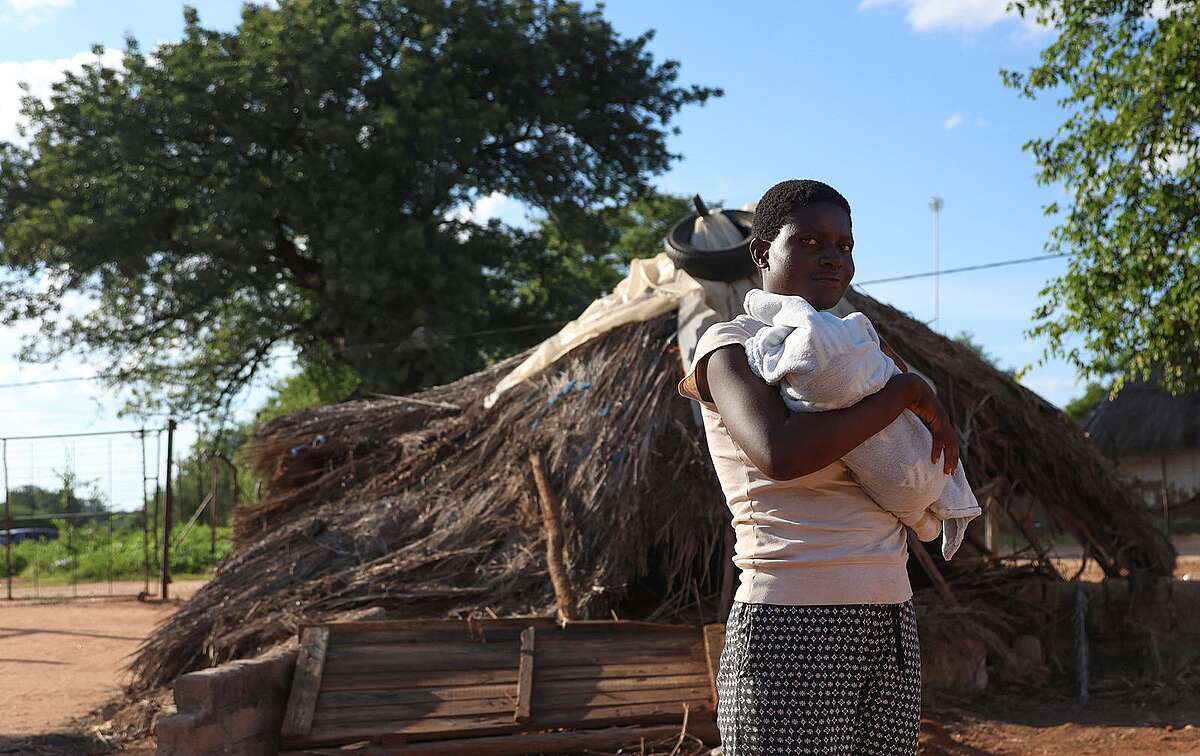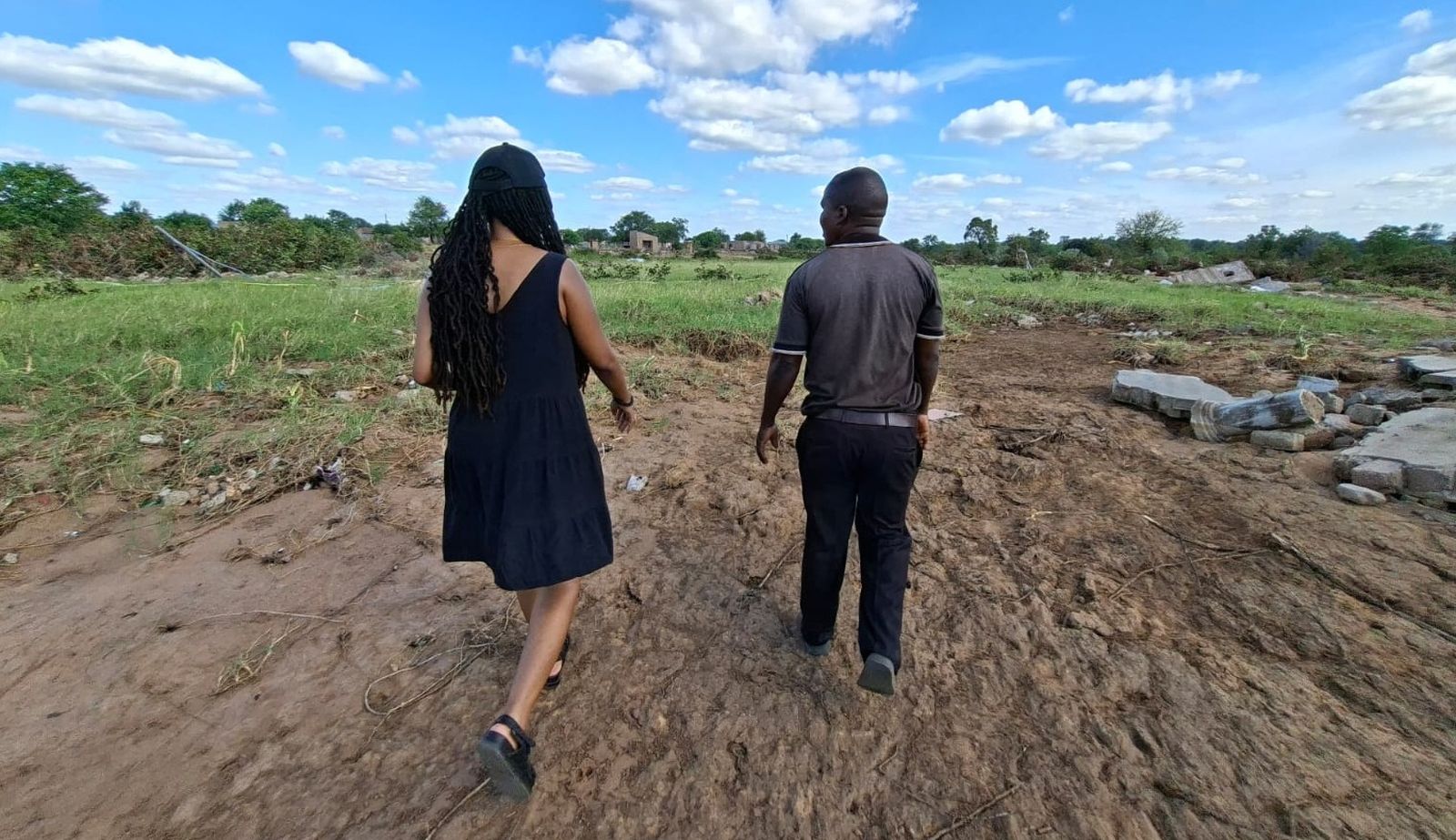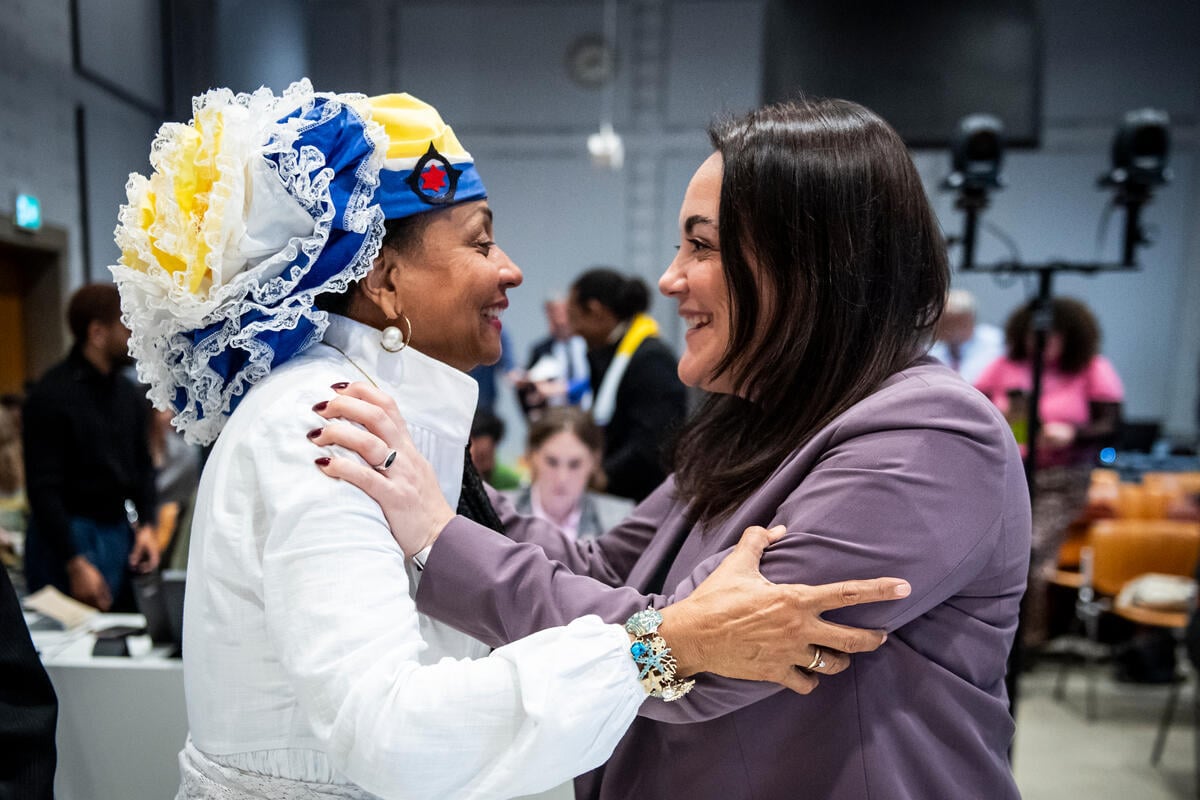Young people around the world are taking to the streets, concerned by the climate crisis. They’re also bringing the fight to the courtroom. From Colombia to Canada, what they want is simple: an equal chance to grow up safe, free and pursue happiness.
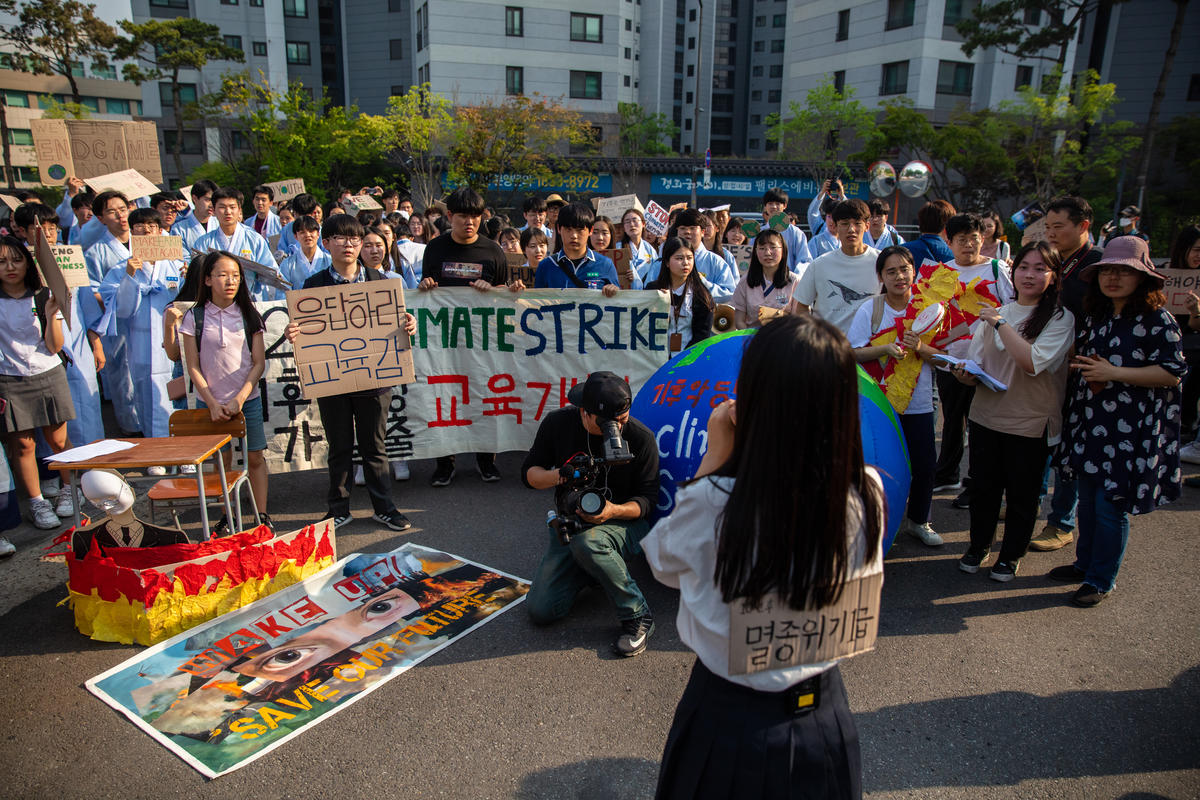
Students in Seoul demand more strong action on climate crisis as part of the global Fridays For Future movement on May 24 2019.
I am a 26-year old, smack dab in the middle of the millennial generation. Like many my age, I spend a lot of time being scared about my future and angry about the past. When half your income goes to rent, and job security presents itself in the form of unpaid internships it is hard to hear that we are lazy, entitled, and obsessed with things like avocados and political correctness.
But these days, it’s a good time to be a millennial. It feels good to see my generation changing the rules of the game and uniting for a better future. Beyond mobilising, young people are also using the law – an effective yet imperfect and conservative tool – to demand intergenerational justice.
That’s right. Youth around the world, some of whom can’t even vote yet, are suing governments over decades of climate inaction. Some have already succeeded, like in Colombia, where the Supreme Court of Justice ruled in favour of 25 young people who argued that the government had violated human rights by permitting deforestation in the Amazon, which in turn contributes to climate change.
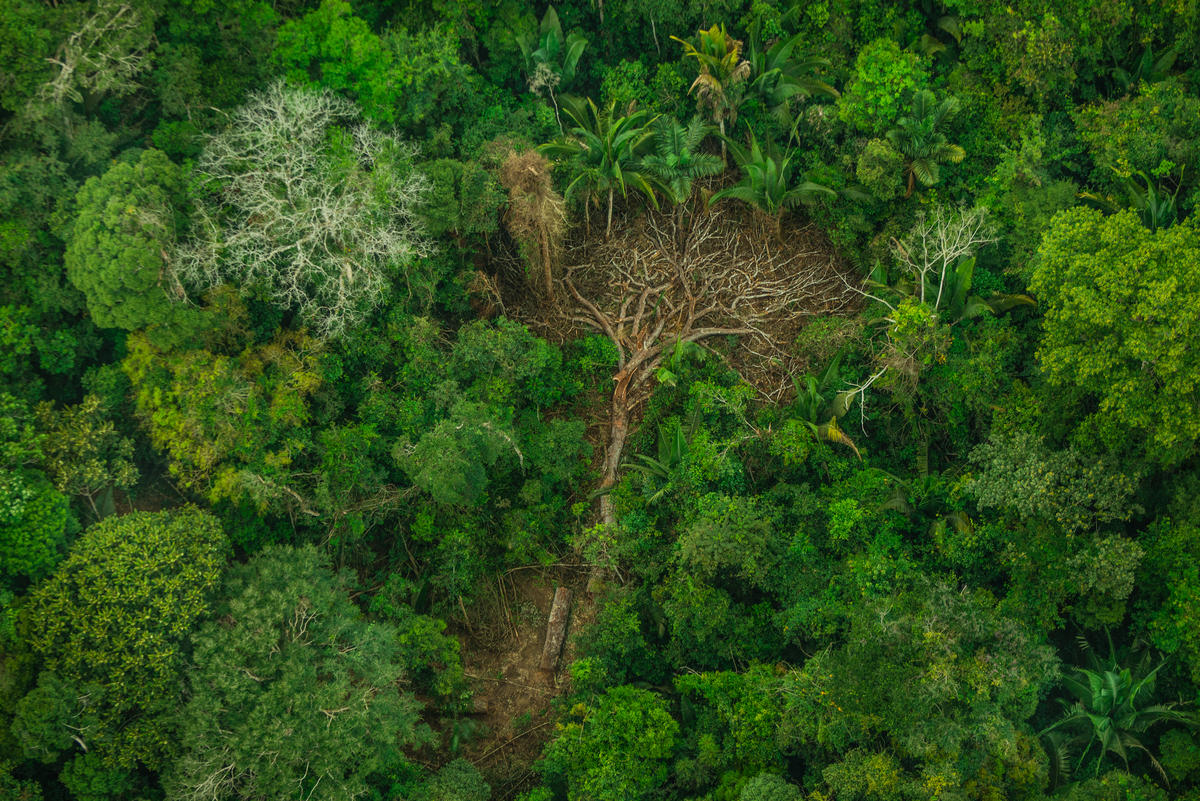
Deforestation in Karipuna Indigenous Land, part of Brazil’s Amazon
Most of the youth climate lawsuits are still ongoing. In the US, 21 young plaintiffs supported by the organisation Our Children’s Trust assert that “government-sanctioned climate destruction” has violated the youngest generations’ constitutional rights to life, liberty, and property. By choosing its current energy policy and ignoring the climate crisis, plaintiffs claim that the US government devalues the future of young people and values adults today more. After several legal moves by the Trump administration to stop them, it is now up to the Ninth Circuit Court of Appeals to decide whether the youth’s case will proceed to trial –as it rightly should.
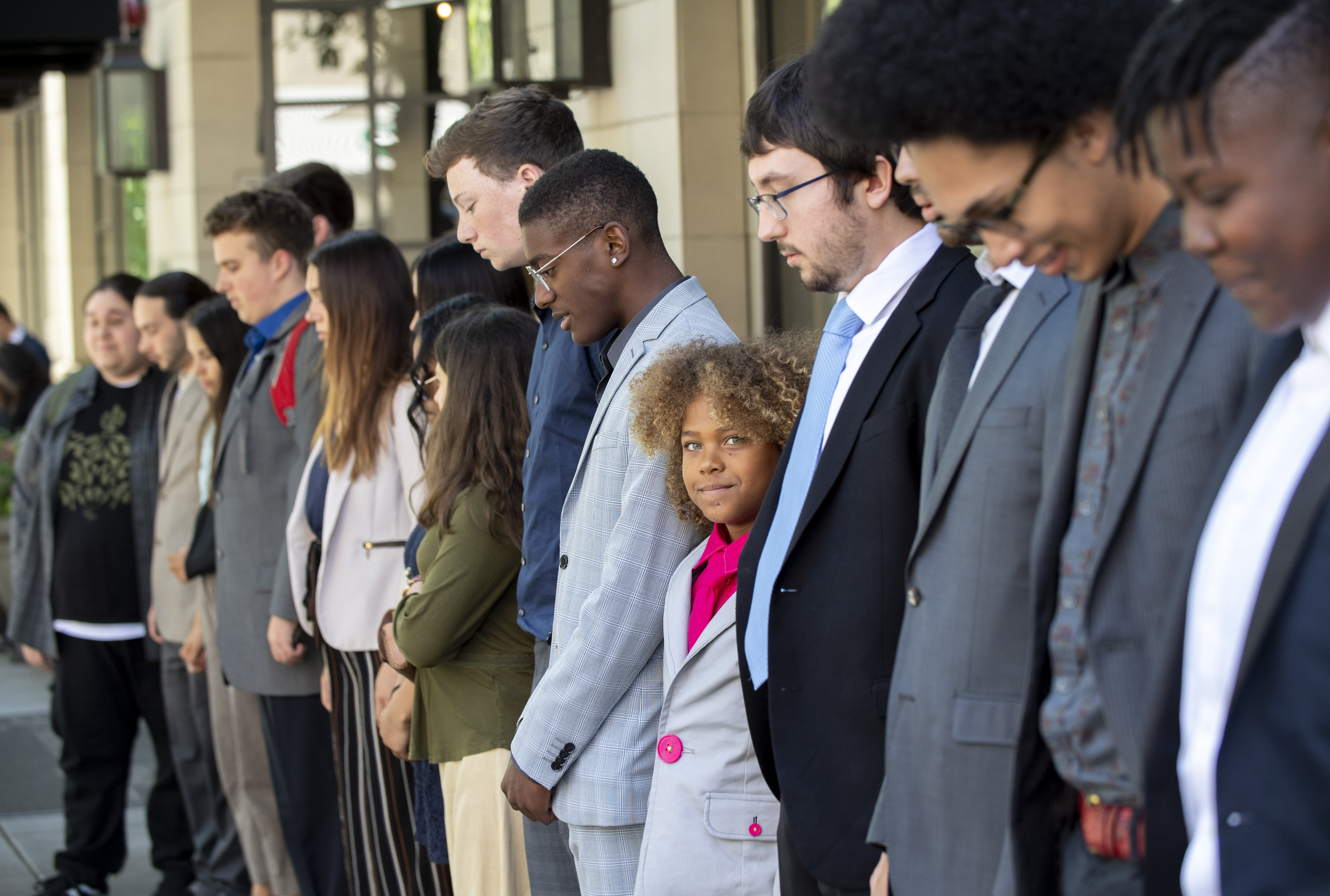
Youth plaintiffs in the Julian v United States Federal climate change lawsuit line up before walking to the federal courthouse in Portland. The hearing is being held in front of a panel of judges with the 9th Circuit Court of Appeals in Portland. The constitutional lawsuit was brought against the United States government by 21 youth in 2015.
Similarly, in Canada, a class action lawsuit was launched on behalf of everyone under the age of 35 in the province of Quebec by the youth group Environnement Jeunesse. The lawsuit argues that the Canadian government’s inaction on climate change violates young people’s human rights, including their right to equality. As a young Quebecer who is covered by this class action, I was proud to see that a large group of my peers showed up for the first hearing on whether the case should proceed, even taking up one of the largest rooms in the courthouse.
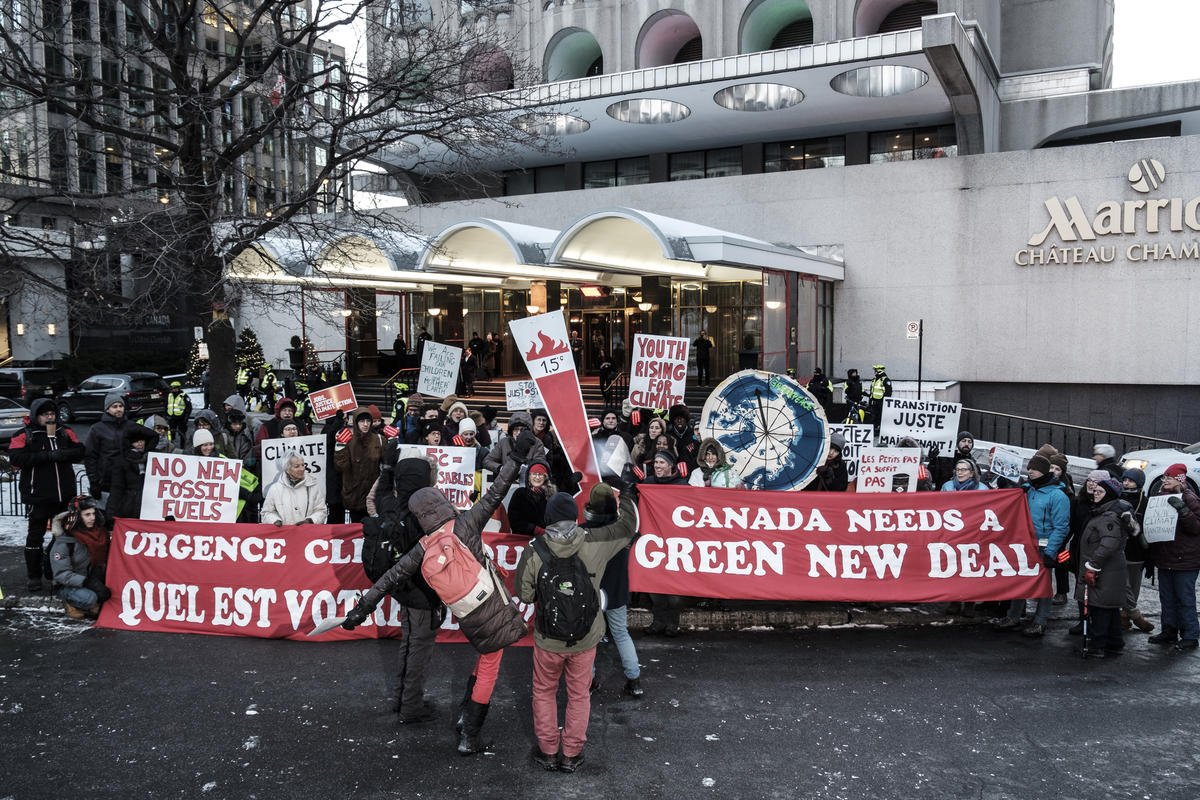
A welcoming committee of various citizen and environmental groups warmly welcomed Prime Minister Justin Trudeau and his provincial counterparts in Montreal at the First Ministers’ meeting in December 2018 to remind political leaders that the current federal plan will not allow us to reach our Paris climate targets and that the conclusions of the latest IPCC report must be respected to save the planet from worsening climate change.
However, as a climate lawyer, I also know that the legal battle will be a long one. Just as student strikes are challenging people’s perceptions and waking up world “leaders”, climate litigation disrupts the legal system and forces it to adapt to modern problems. Governments often claim that the courts are not the appropriate space to decide on complex issues like climate change and that politicians, not judges, should be the ones addressing the crisis. We already know how bad that can go. By addressing the courts, youth plaintiffs can take some control in their own hands and be heard on equal footing with world leaders.
When there is a government system that is causing such harm to people’s basic rights, it is the duty of judges to intervene and stop the violation. Indeed, courts in the Netherlands and in a youth climate case in New Zealand have stated that judges have the authority to decide legal questions on climate change, even if those decisions might have political consequences.
In a generation plagued by uncertainty — be it financial, romantic, existential — one thing is clear: young people today will suffer disproportionately from the impacts of the climate breakdown, despite being the least responsible. That’s why we are using all the tools in our arsenal, both in the court of law and in the court of public opinion. The global mobilisation of #FridaysForFuture goes hand-in-hand with youth-led climate litigation. Young people are challenging the status quo imposed by previous generations and leading the way for upholding the moral and historical responsibilities towards future generations.
https://www.facebook.com/greenpeace.international/videos/313243602671462/
Like I said, it’s a good time to be a millennial.
Louise Fournier is associate litigation counsel for Greenpeace’s global Climate Justice and Liability campaign
Want to know more about the rising tide of climate legal actions? Check out this toolbox to hold your government accountable for its climate inaction.
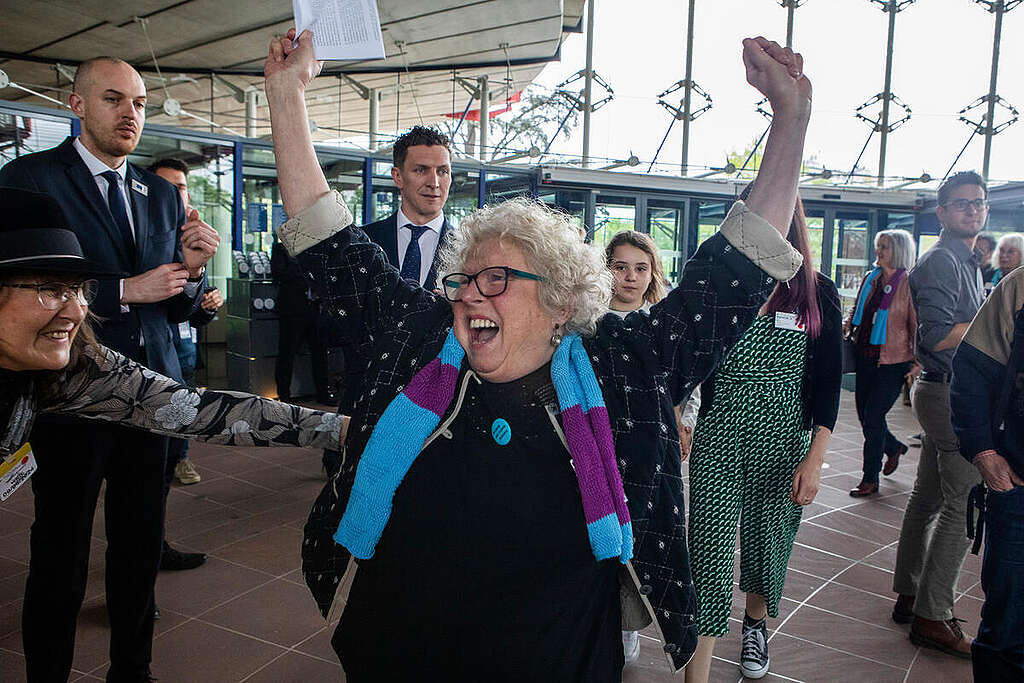
It’s time for all of us to assert our rights, demand climate justice, and a dignified way of life.
Take action
